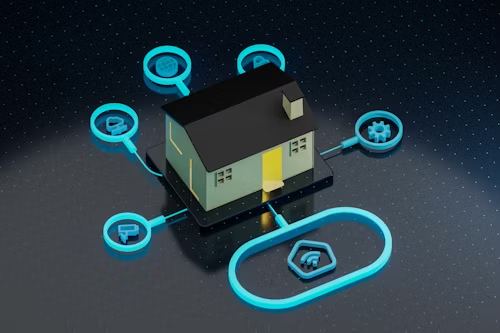The allure of a smart home is undeniable: lights that respond to your voice, thermostats that learn your preferences, and security systems you can monitor from anywhere.
While the technology itself is fascinating, the true magic of home automation lies in its seamless integration and reliable performance. Achieving this sophisticated level of connectivity often requires professional expertise.
Engaging the right home automation installers is paramount to transforming your vision into a functional, intuitive reality. This article outlines critical factors to consider, ensuring you choose a partner who can deliver a truly intelligent and user-friendly smart home experience.
Experience and Expertise in Systems
The world of home automation is vast and rapidly evolving, encompassing everything from lighting and climate control to security, entertainment, and motorized blinds. When seeking home automation installers, it’s crucial to assess their breadth of experience across various systems and technologies.
Do they specialize in certain brands or protocols (e.g., Z-Wave, Zigbee, Wi-Fi)? Can they integrate diverse components from different manufacturers?
An installer with deep knowledge of various platforms can design a cohesive system that meets all your needs and is future-proof, rather than a collection of disparate gadgets.
Licensing and Insurance
Just like any other reputable contractor working on your home, professional home automation installers should be fully licensed and insured.
Licensing indicates that they meet industry standards and are legally permitted to operate in your area. Comprehensive insurance, including liability and workers’ compensation, is non-negotiable.
This protects you from financial responsibility in case of accidental damage to your property during installation or if an installer sustains an injury while on your premises. Always request proof of current licenses and insurance policies and verify their validity.
Reputation and References
A strong reputation is a testament to quality workmanship and customer satisfaction. Begin your search by checking online reviews on various independent platforms. Look for consistent positive feedback regarding their professionalism, technical skill, and responsiveness.
Beyond online testimonials, ask potential home automation installers for a list of recent references. Contact these previous clients to inquire about their experience: Was the project completed on time and within budget? How well did the system function post-installation? Were any issues resolved promptly and effectively?
Comprehensive Design and Planning
A good home automation system is well-planned from the outset. Reputable home automation installers won’t just quote you a price for components; they will spend time understanding your lifestyle, needs, and desired outcomes.
This involves a thorough consultation, discussing everything from daily routines to long-term goals. They should then present a detailed design plan that outlines the proposed system, wiring requirements, component placement, and user interface options.
A comprehensive plan ensures that the installation process is smooth and the final system truly enhances your living experience.
Post-Installation Support and Maintenance
Home automation systems, like any technology, may require occasional troubleshooting, updates, or adjustments. Inquire about the type of post-installation support offered by the home automation installers. Do they provide training on how to use your new system?
Is there a warranty on their workmanship and the installed components? What are their service response times for technical issues?
A commitment to ongoing support and maintenance indicates a contractor who stands behind their work and is invested in your long-term satisfaction.









